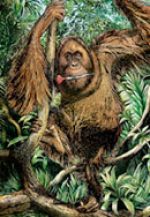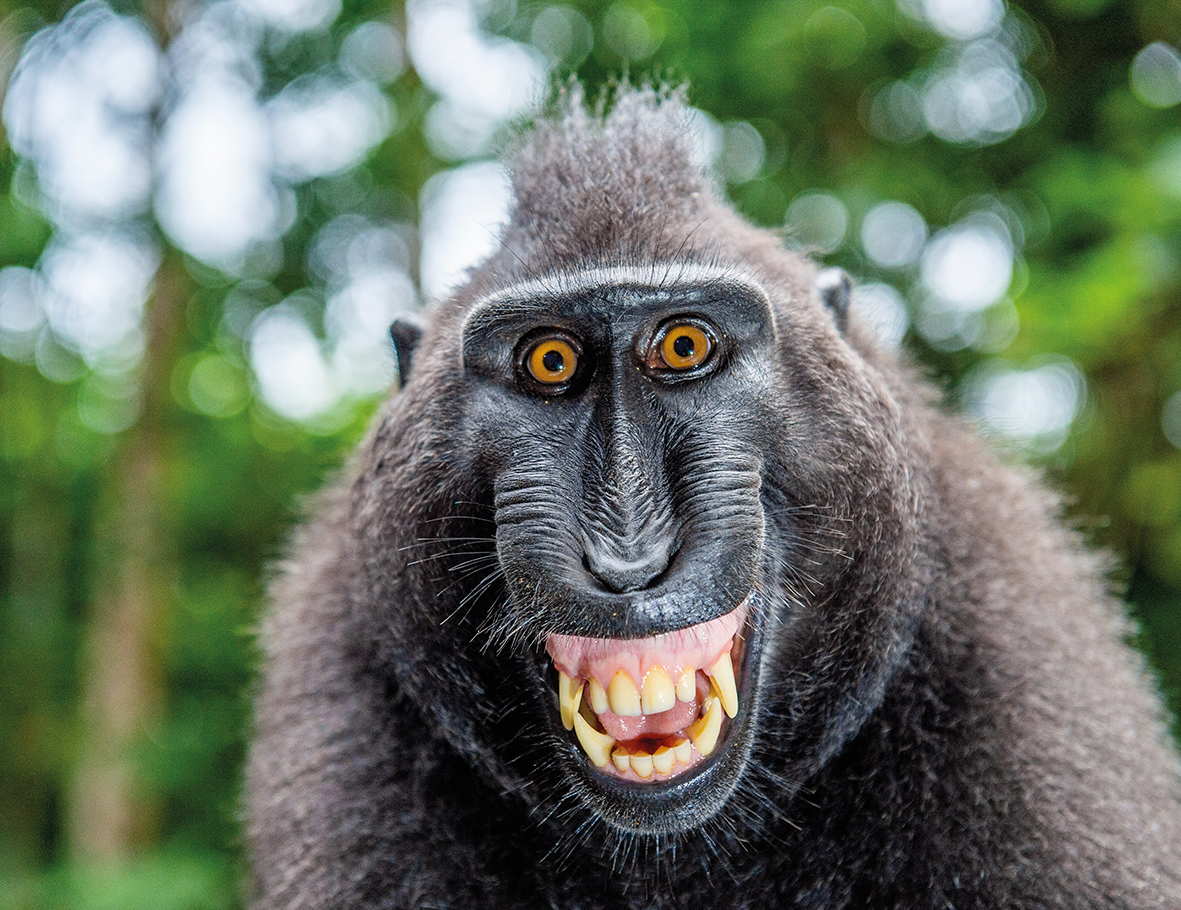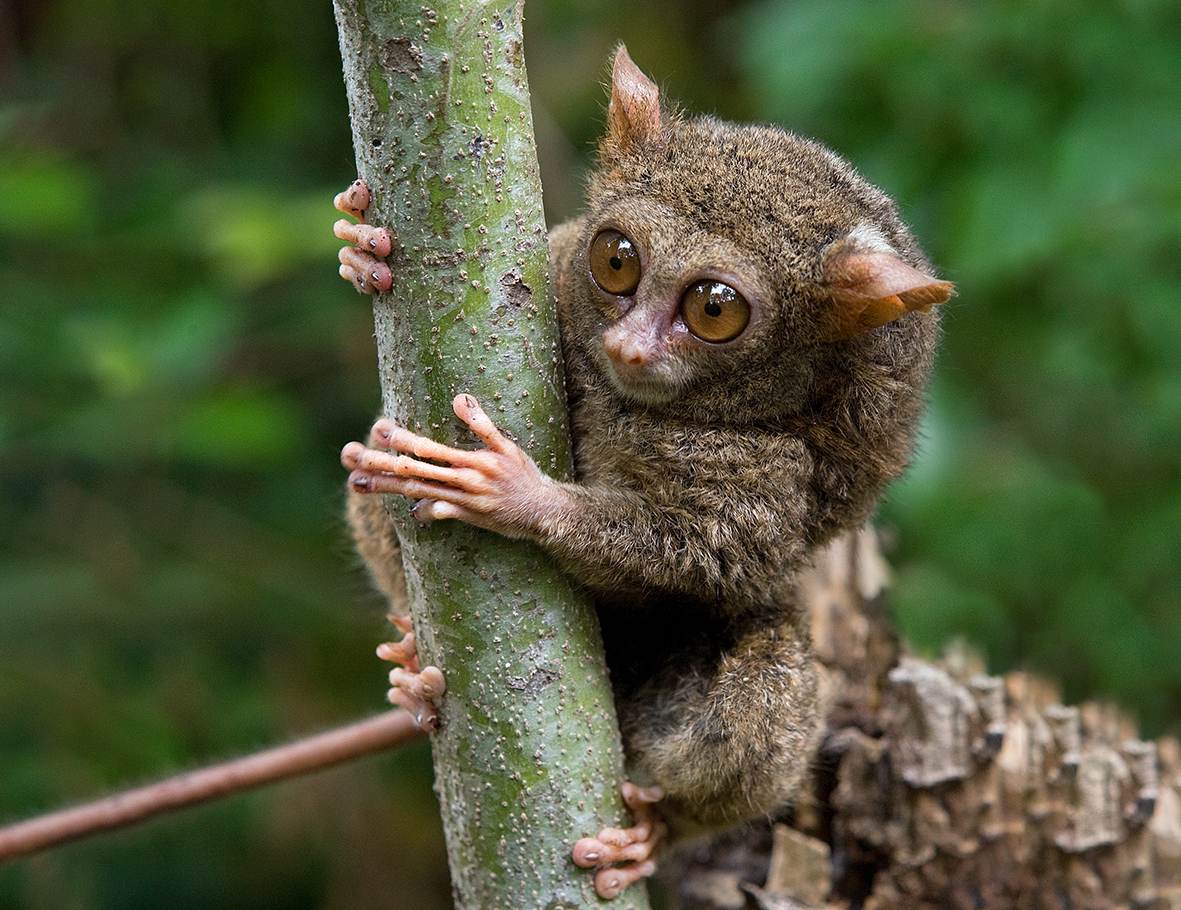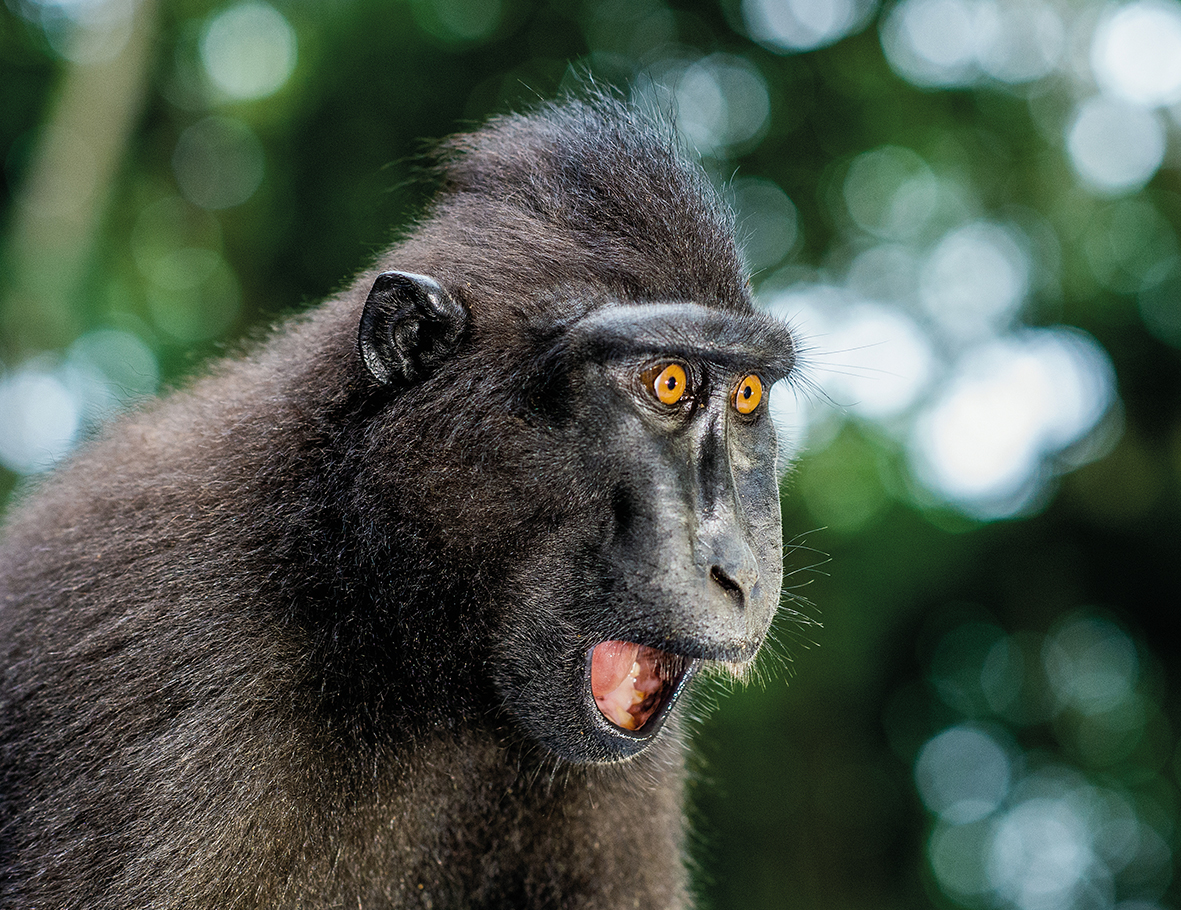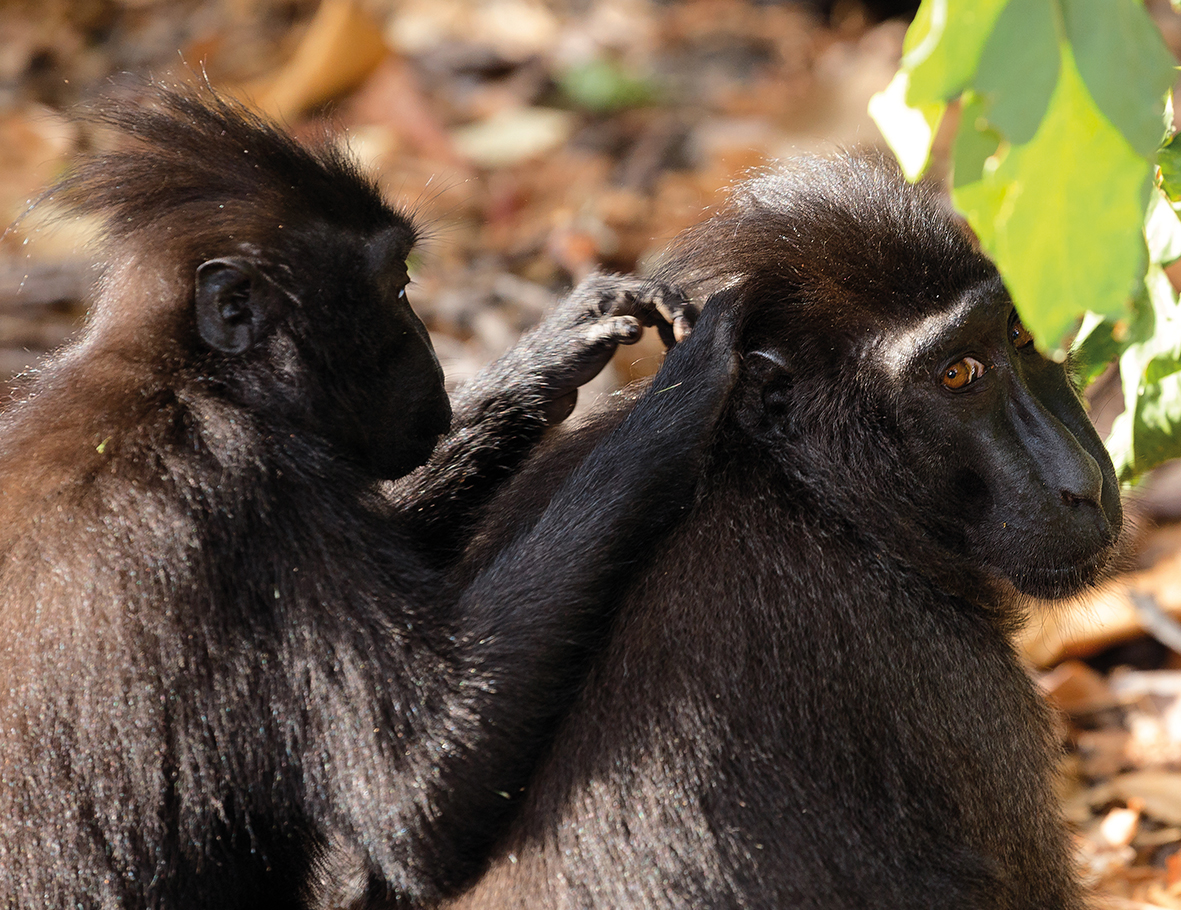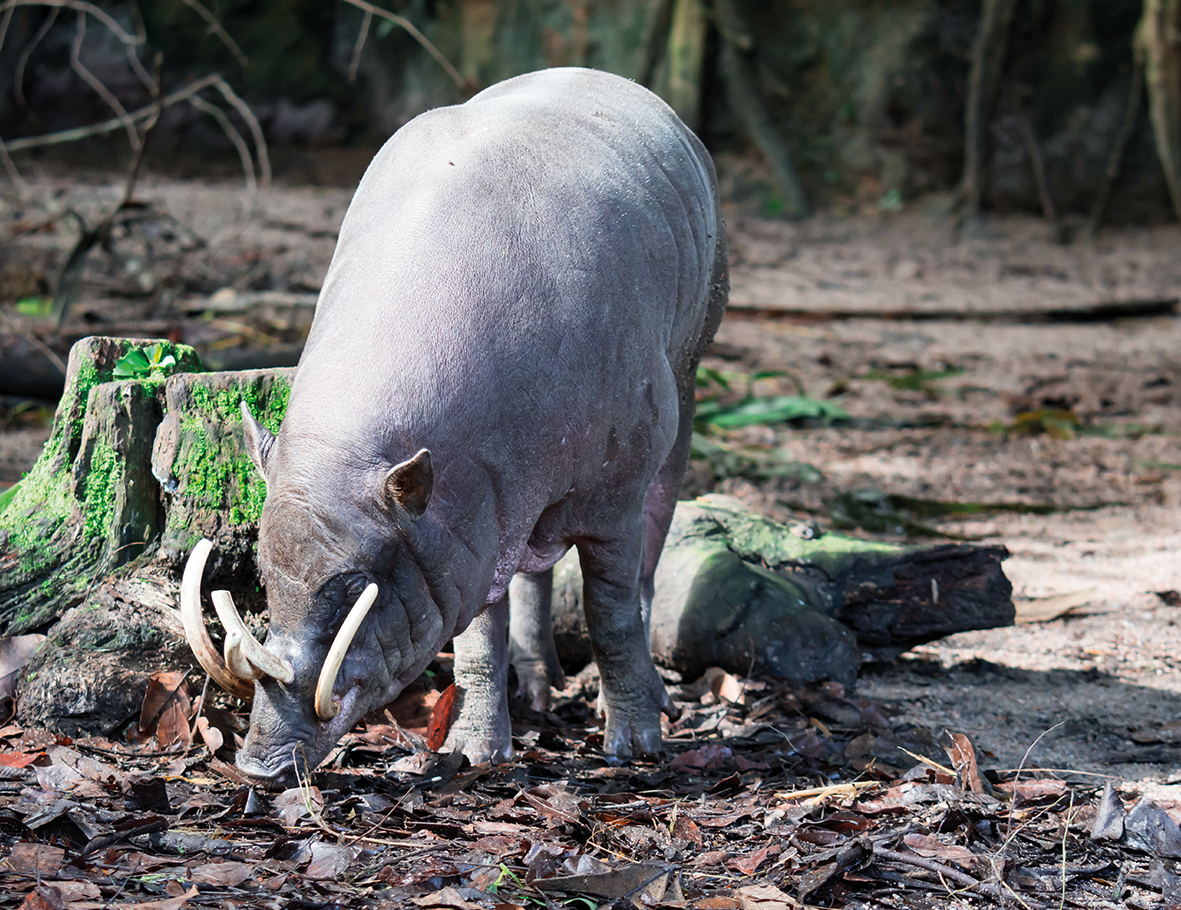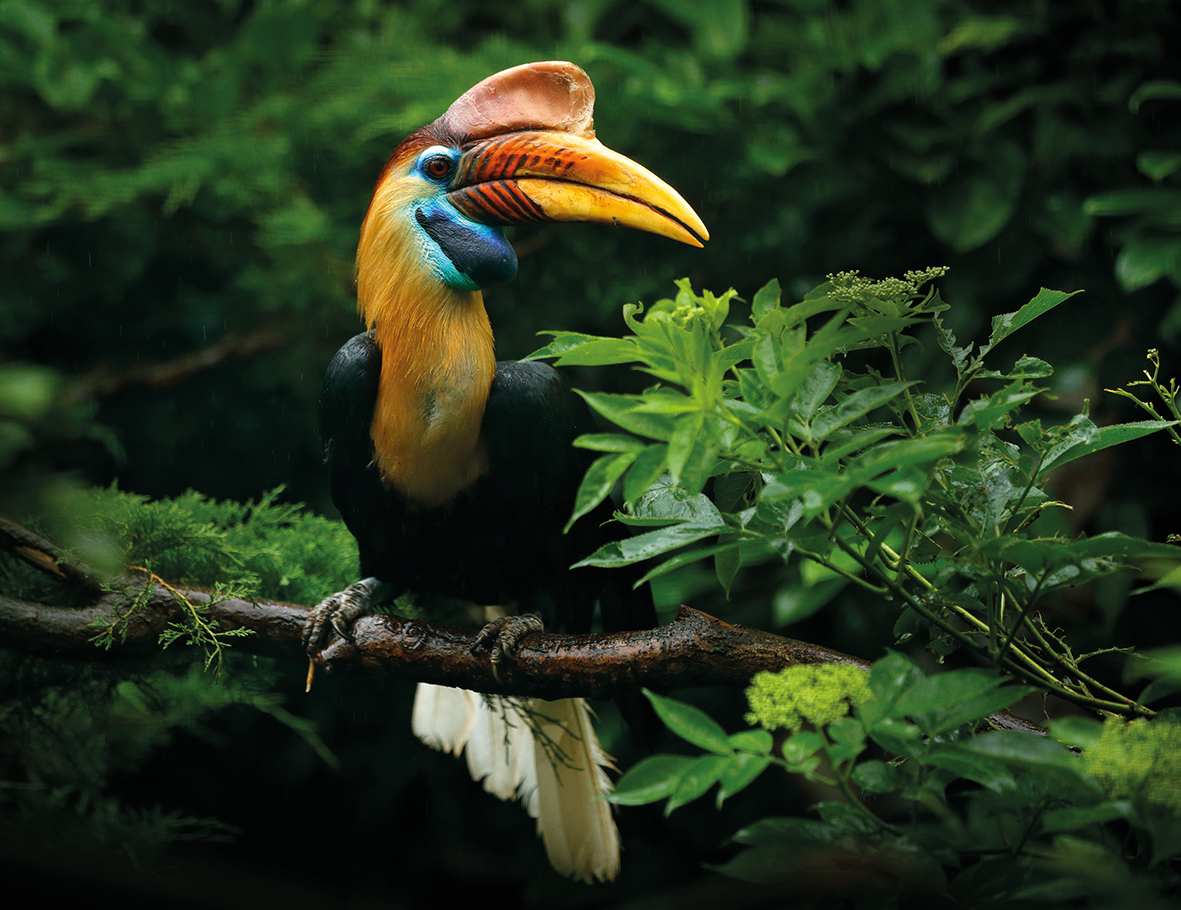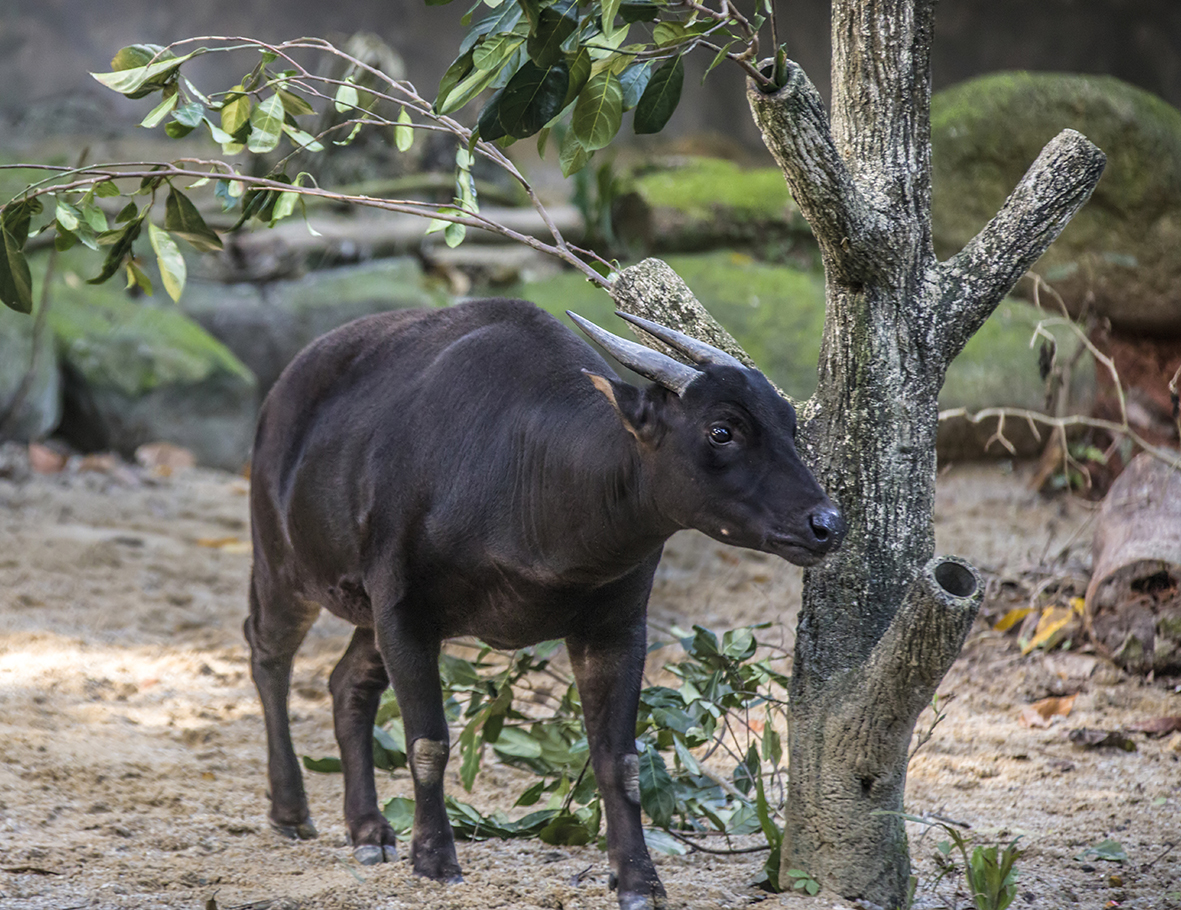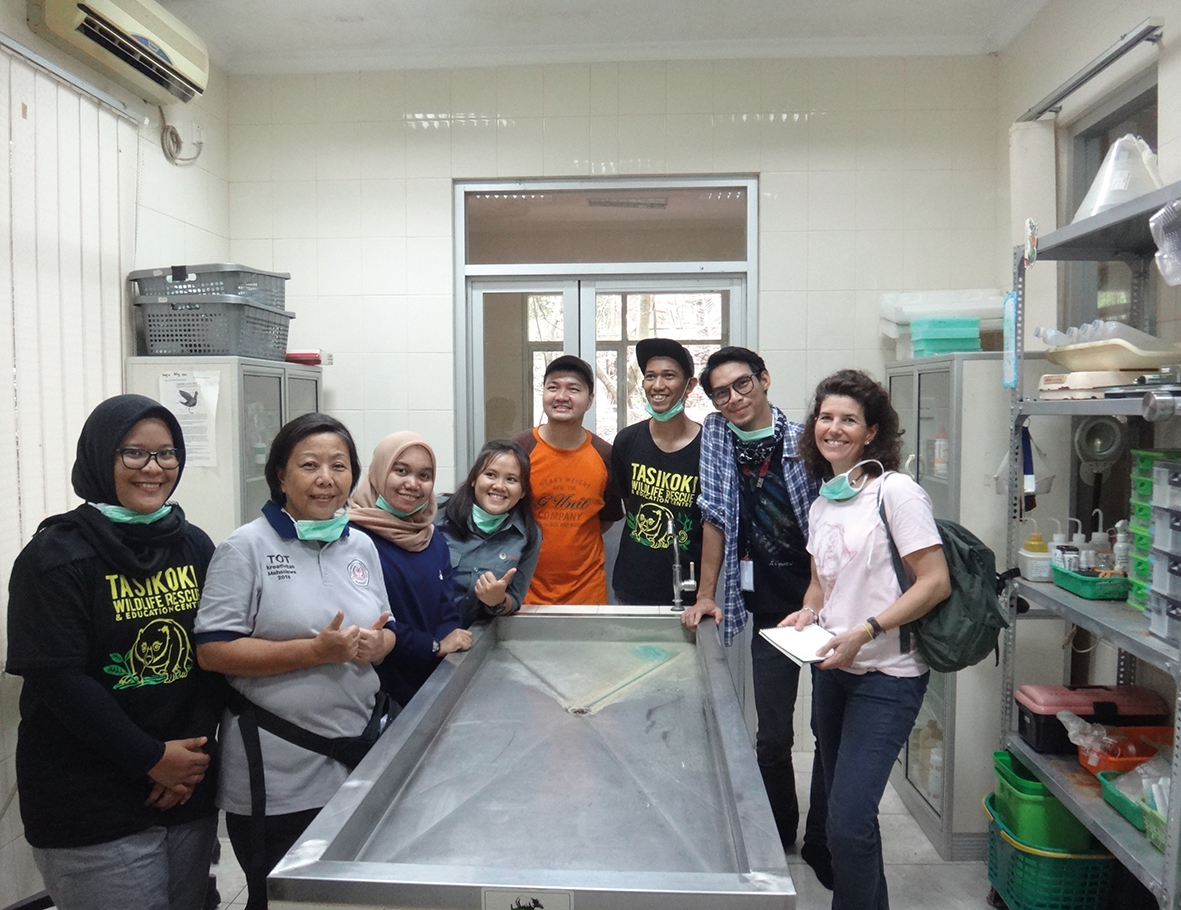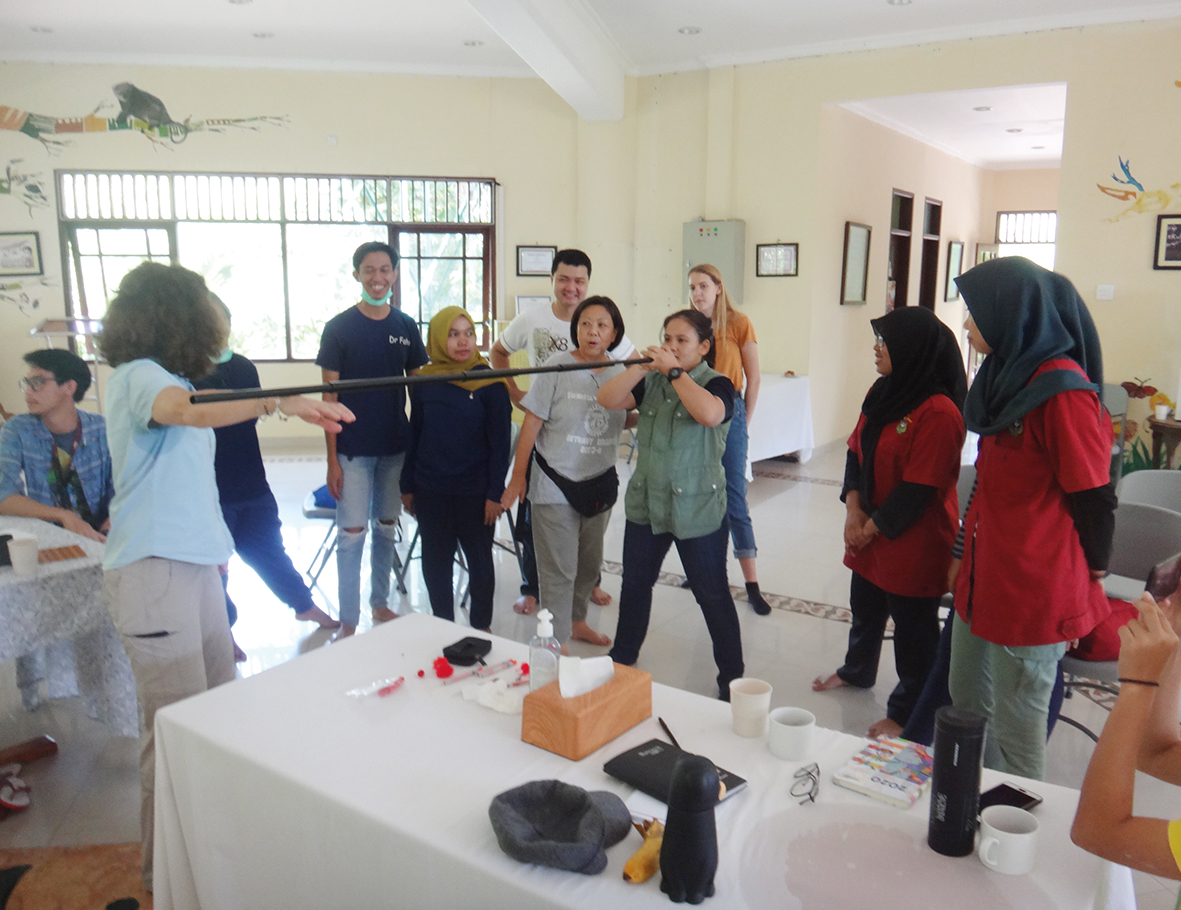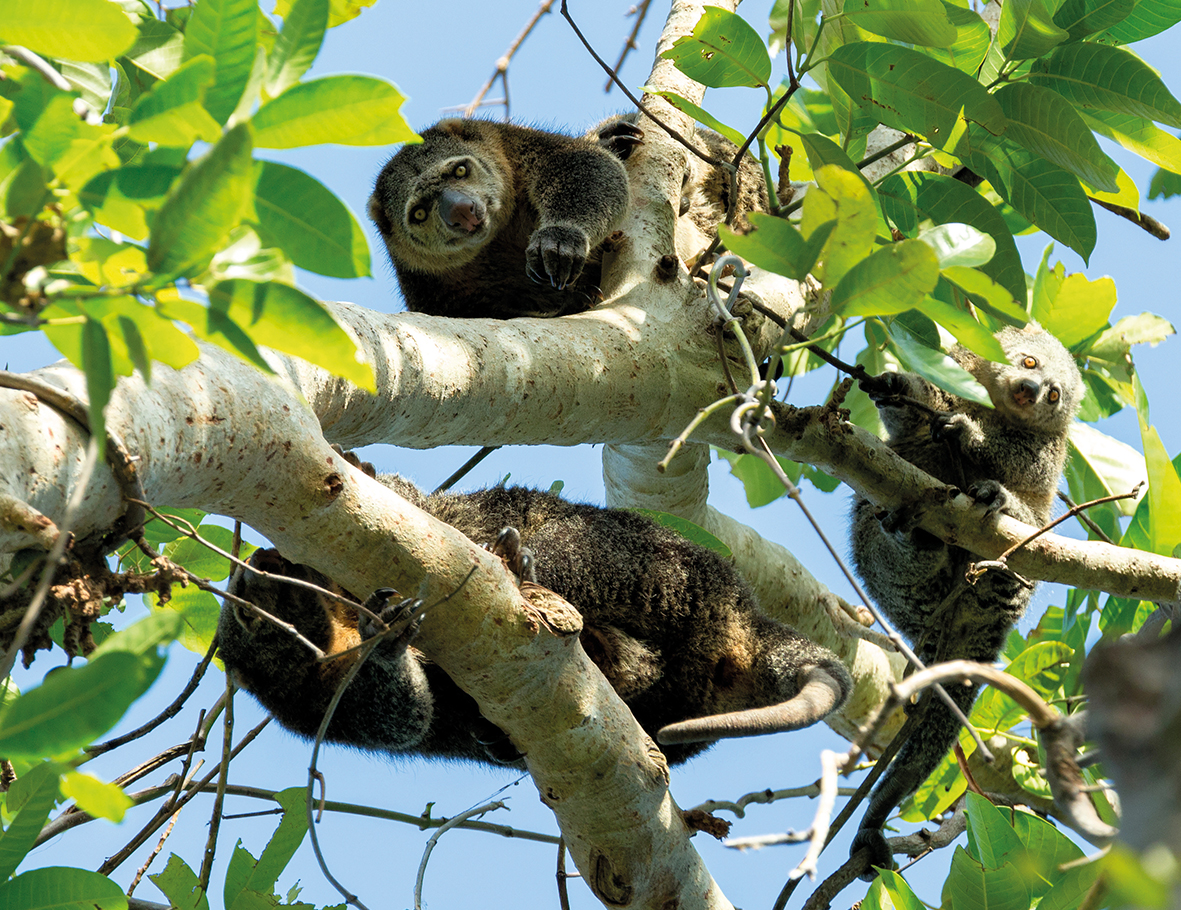Sulawesi
The Academy Abroad: Sulawesi
The Academy has traveled to various continents to advise zoos or parks and to exchange ideas. Shortly before the extent of the Covid 19 outbreak became known to us in Germany, Dr. Julia Gräfin Maltzan traveled to Sulawesi, an island in the Indonesian archipelago.
She describes her experiences from March 2020:
“Even the landing on Manado was an adventure. Thick clouds veiled the volcanic mountain formations and we had to fly repeatedly out to sea. The wildlife rescue station in Tasikoki, my destination, lies in the north of the rugged island of Sulawesi. It forms the border between the Eurasian and the Australian tectonic plates, providing a unique habitat for fauna and flora. Among mammals alone, countless species such as macaques, tarsiers, anoas, cuscus, and babi- rusas, are represented. Some of them only have very small distribution ranges. Unfortunately, there is also a flourishing illegal trade in wild animals on the innumerable islands of the Indonesian archipelago. The sale of “bush meat” i.e., wild animal meat for consumption – the dreaded source of zoonosis – is a lucrative business. The Tasikoki wildlife rescue station is thus fortunate salvation for many of the currently smuggled animals. Following quarantine, they are integrated into groups and, when possible, reintroduced into the wild. School classes also visit the 55-hectare-large area with its over 400 animals and learn everything about native animal species and ecological interdependencies, which is considered the most important basis for long-term species conservation.
The station in Tasikoki is closely connected to the state anoa breeding center in Manado. Both facilities have been supported for years with advice and funds by the Leipzig Zoo, as Leipzig is a pioneer in the maintenance and breeding of lowland anoas. The small wild cattle population is endangered due to hunting and the destruction of habitat, and the mountain anoa has most likely already become extinct in the wild.
We’ve finally landed! As usual, I brought along a large donation of medicine and blowpipe equipment as well as books in my luggage. A focus of my trip, initiated by and in cooperation with the Leipzig Zoo and Simon Purser of the Wallacea Nature Conservation Organization, is professional interaction with 15 veterinarians from around Sulawesi, who have arrived for a one-week training programme. Our topics in theory and practice include immobilization and anesthesia, blowpipe training, feeding, animal husbandry requirements, enclosure design, development of an animal clinic, aspects of animal welfare, case studies from the participants’ institutions, and general question and answer sessions about wild animal medicine. A visit to the anoa breeding center with its new animal clinic is also impressive. We expand upon aspects of the breeding management of the smallest buffalo species in the world, and discuss feeding, birth monitoring, and juvenile animal husbandry.
I am once again overwhelmed and grateful for the warm hospitality and openness of my colleagues and the intensity with which everyone listens and works together. All the participants communicate their experiences, problems, and views from their diverse professional areas with great dedication. The different traditions, cultures, religions, and languages are suddenly invisible in our shared passion for wild animal management and the vision for species conservation. We understand each other and speak interpersonally and substantially the same language and a strong emotional fellowship and professional respect emerges.
My grateful conclusion: I may be the teacher, but once again, I still had a lot to learn!
A brief side note: Shortly before the extent of the Covid 19 pandemic became known to us in Germany, I was impressed by the completely self-evident general hygiene regulations on Sulawesi: masks and handwashing are permanently the order of the day as a prophylaxis in contact with non-human primates, birds, and all other residents of the wild animal rescue station. Anyone who coughs is naturally wearing a mask, this was always the rule. Hands are washed before the coffee break – in Germany, we had nearly forgotten how to do that. Masks are worn in all airports and the temperature of passengers is measured, in contrast to my arrival in Munich. And naturally all participants had their own refillable drinking bottles instead of one-way, non-recyclable plastic bottles – thus contributing to sustainable climate protection. In this respect, I also learned something new!
